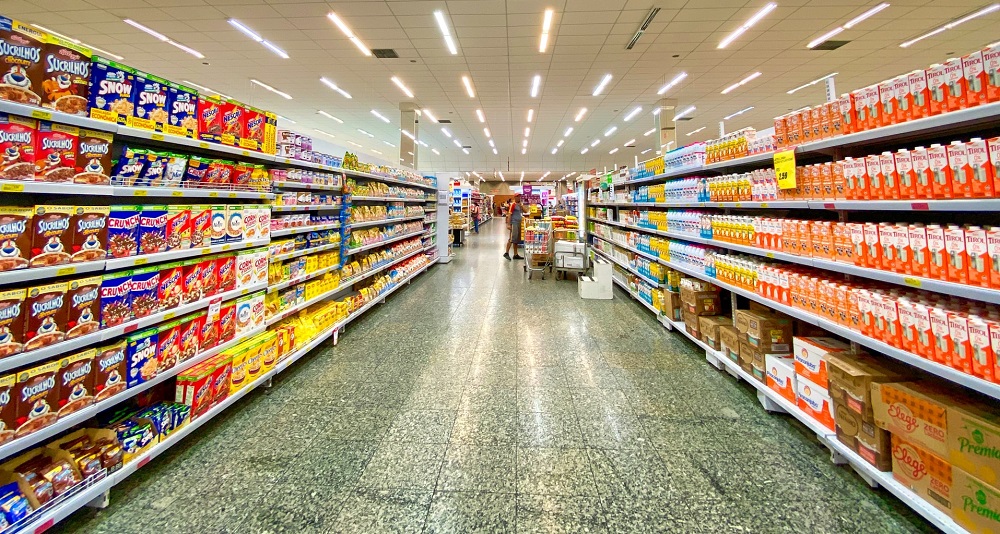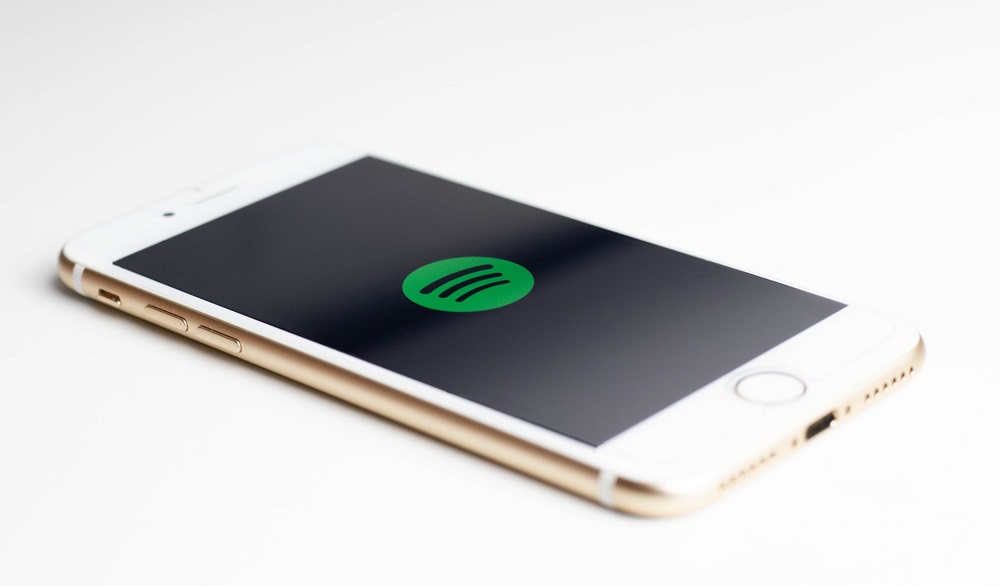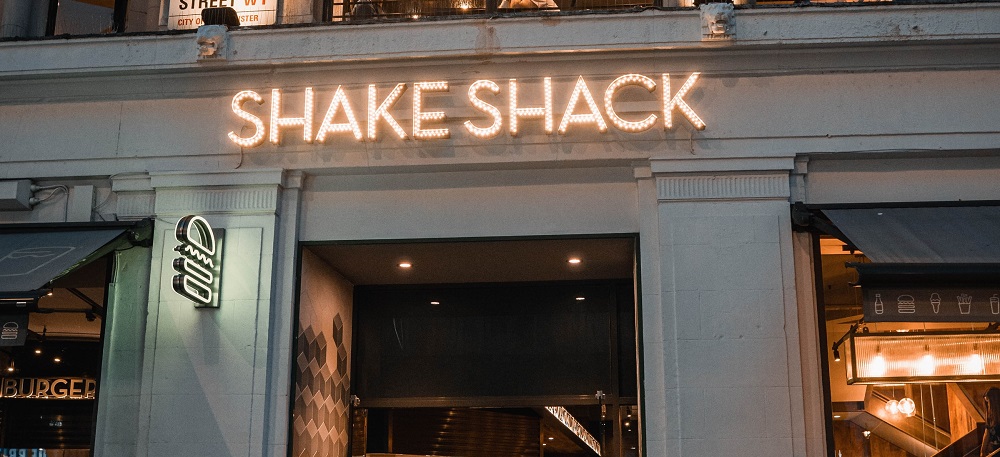When U.S. cities and states faced shelter-in-place orders to limit the spread of the coronavirus, Americans’ reduced mobility resulted in plummeting sales at rideshare companies. With the exception of a late 2020 dip, sales have been gradually recovering since April 2020. Uber sales were up 147 percent year-over-year and Lyft sales were up 117 percent year-over-year in December 2021. The breakdown of December 2021 sales between Uber and Lyft reveals that market share has remained stable, relative to prior months.
Pandemic engagements and holiday shopping have corresponded with dazzling sales for jewelry companies, including both brands that are mostly focused on ecommerce as well as those that have historically sold through brick-and-mortar stores. Transaction data indicates that sales at newly public DTC e-tailer Brilliant Earth (NASDAQ: BRLT) have more than doubled between November 2019 and November 2021. At the same time, sales at more traditional jewelry retailers owned by Signet Jewelers (NYSE: SIG)—such as Zales, Kay Jewelers, and Jared—have resumed their seasonal patterns after an initial disruption early in the pandemic.
Albertsons Companies, Inc (NYSE: ACI), the parent company of supermarket chains such as Albertsons Markets, Safeway, and Acme, made its public debut back in June 2020. Alternative data—specifically, Bloomberg Second Measure’s consumer transaction data—shows that after an initial bump in sales at the beginning of the pandemic, Albertsons Companies’ sales are back to pre-pandemic levels. A closer look at our data also reveals that customer counts at Albertsons are lower than before the pandemic, but average monthly sales per customer is higher.
When many Americans sheltered in their homes early in the coronavirus pandemic, meal delivery sales reached new heights. Our data reveals that in November 2021, sales for meal delivery services grew 13 percent year-over-year, collectively. The ongoing pandemic may also be driving more Americans to make their first meal delivery purchase. In November 2021, 50 percent of U.S. consumers had ever ordered from one of the meal delivery services in our analysis, up from 44 percent a year ago.
When U.S. cities and states faced shelter-in-place orders to limit the spread of the coronavirus, Americans’ reduced mobility resulted in plummeting sales at rideshare companies. With the exception of a late 2020 dip, sales have been gradually recovering since April 2020. Uber sales were up 124 percent year-over-year and Lyft sales were up 101 percent year-over-year in November 2021.
Over the past few years, Spotify (NYSE: SPOT) has rolled out new options for its listeners. Most recently, in July 2020, Spotify introduced its Premium Duo plan, which is designed for two-person households and offers two premium accounts for one discounted price. While the Premium Duo plan currently represents only about 2 percent of Spotify’s U.S. consumer transactions, a look at customer retention by acquisition price point indicates that the Premium Duo plan has a higher customer retention rate after 12 months than other Spotify subscription plans
Last week, DTC clothing subscription companies Stitch Fix (NASDAQ: SFIX) and Rent the Runway (NASDAQ: RENT) released earnings reports showing strong revenue growth in the most recent fiscal quarter. Before these earnings reports were released, transaction data from Bloomberg Second Measure projected the quarter’s revenue within 1 percent of each company’s reported revenue. Our data also reveals that sales for Stitch Fix slowed down in November, the start of its new fiscal quarter.
Throughout the COVID-19 pandemic, Shake Shack (NYSE: SHAK) has been revamping its omnichannel strategy. The fast casual burger chain has launched features such as curbside pickup and delivery through its own app to facilitate online ordering, and is looking to further expand its retail footprint in 2022 by opening drive-thrus and 50 new locations, primarily in suburban areas. Consumer transaction data shows that Shake Shack’s online sales as a percentage of total U.S. sales has been on the rise over the past two years.
In 2020, several big-box chains announced that they would close their retail locations on Thanksgiving Day due to the ongoing COVID-19 pandemic. One year later, some of those same companies—including Walmart, Target, and Best Buy—will remain closed again on Thanksgiving. Consumer transaction data reveals that among the three companies, Walmart saw the most significant decrease in year-over-year sales the week of Thanksgiving in 2020. At the same time, Best Buy saw a major shift to online sales during that week while most sales at Walmart and Target still took place through retail channels.
When many Americans sheltered in their homes early in the coronavirus pandemic, meal delivery sales reached new heights. Our data reveals that in October 2021, sales for meal delivery services grew 15 percent year-over-year, collectively. The ongoing pandemic may also be driving more Americans to make their first meal delivery purchase. In October 2021, 50 percent of U.S. consumers had ever ordered from one of the services in our analysis, up from 44 percent a year ago.
When U.S. cities and states faced shelter-in-place orders to limit the spread of the coronavirus, Americans’ reduced mobility resulted in plummeting sales at rideshare companies. With the exception of a late 2020 dip, sales have been gradually recovering since April 2020. Uber sales were up 103 percent year-over-year and Lyft sales were up 87 percent year-over-year in October 2021.
Glossier—the DTC beauty company that recently raised $80 million in Series E funding—has historically held one major sale each year, coinciding with Black Friday and Cyber Monday. Consumer transaction data reveals that Glossier’s sales the week of Black Friday are continuing to grow year-over-year. At the same time, a comparative analysis of other major beauty retailers found that Sephora’s sales events correspond with a sharper increase in monthly sales per customer compared to sales events at Glossier and Ulta Beauty.
Dutch Bros Coffee, the Oregon-based coffee chain popular on the West Coast, recently made its debut on the NYSE under the ticker BROS. In the two years leading up to its IPO, Dutch Bros launched market expansion plans aimed at reaching consumers in new states. An analysis of consumer transaction data found that Dutch Bros Coffee’s overall sales have more than doubled over the past two years, driven by significant growth in states where it already had a strong presence, as well as increasing sales in states, such as Texas, in which the company recently opened newer locations.
Options for money transfers have expanded in recent years, as peer-to-peer platforms and cryptocurrency have grown in popularity as alternatives to traditional banks. Consumer transaction data reveals that Wise, formerly known as TransferWise, has accounted for a growing share of the money exchanged by U.S. consumers using international money transfer services, overtaking more established competitors like Xoom and Western Union.
The COVID-19 pandemic has led to a shift in beauty and grooming habits, as exemplified by the rise of the quarantine beard and DIY haircuts. Men’s grooming subscription companies—both those that cater to clean-shaven customers and those that offer products for bearded customers—saw a higher percentage of new customers early in the pandemic compared to the same period a year before. In addition, Dollar Shave Club retains the crown for highest customer retention among a selection of DTC companies in the men’s grooming industry, while Bevel has the highest quarterly sales per customer.
Dating app industry growth has been a hot topic throughout the COVID-19 pandemic, as social distancing drove many U.S. consumers to virtual platforms to find love and make new friends. As in-person meetups are resuming, a number of dating apps have also rolled out features to help users filter potential matches by vaccination status. An analysis of a select group of companies in the online dating industry reveals that Bumble experienced the strongest increases in paid subscribers early on in the pandemic, as well as a second boost during the summer of 2021.
The alcohol delivery market has been abuzz with activity. Doordash recently launched an alcohol delivery option in select states, while Uber finalized its acquisition of Drizly. An analysis of transaction data reveals that even though bars and restaurants have gradually reopened during the pandemic, sales at same-day alcohol delivery companies like Drizly, Saucey, and Minibar exceed pre-pandemic levels.
TV streaming platforms such as FuboTV, Sling TV, and YouTube TV have been on the rise for the past few years, bolstered by a combination of price increases and new subscribers. While OTT streaming platforms such as Netflix and Hulu experienced a spike in sales and customers at the start of the pandemic, a different pattern has emerged for TV streaming services. Consumer transaction data shows that TV streaming companies, especially FuboTV, generally experience the highest spike in sales and new subscribers in September, corresponding with the start of football season.
When many Americans sheltered in their homes early in the coronavirus pandemic, meal delivery sales reached new heights. Our data reveals that in September 2021, sales for meal delivery services grew 17 percent year-over-year, collectively. The ongoing pandemic may also be driving more Americans to make their first meal delivery purchase. In September 2021, 50 percent of U.S. consumers had ever ordered from one of the services in our analysis, up from 44 percent a year ago.
When U.S. cities and states faced shelter-in-place orders to limit the spread of the coronavirus, Americans’ reduced mobility resulted in plummeting sales at rideshare companies. With the exception of a late 2020 dip, sales have been gradually recovering since April 2020. Uber sales were up 110 percent year-over-year and Lyft sales were up 87 percent year-over-year in September 2021.





















